Episodes
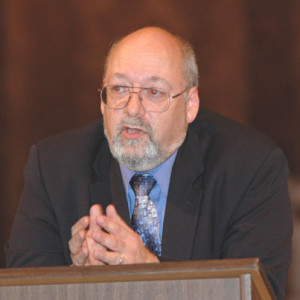
Monday Jun 08, 2020
Monday Jun 08, 2020
Bill interviewed a leading Catholic voice in public affairs, especially in bioethics and the culture of life: Richard Doerflinger.
- His latest column for Catholic News Service examines the implications of the “Science Wins” maxim publicized by Pfizer Inc. in a recent TV commercial. You can see the commercial here.
- Doerflinger mentioned libertarian bioethicist John Harris in connection with the developments and moral controversies surrounding research on embryonic stem cells some years ago. Once concerns about human dignity were successfully eased by the development of pluripotent cells, science and society both did win from a prudential pullback from reliance on embryonic cells.
- Phronesis is practical moral judgment that integrates human wisdom and prudence to make the best decisions possible on public policy and practice given the facts human beings know from science—in light of virtue as a crucial factor.
- In the Catholic journal First Things. James Hankins has written recently about Machiavelli as the political guru of his day, who introduced scientism as a values-free guideline for geopolitical strategy. Machiavelli’s own predictions about outcomes in the absence of moral judgments led to strategic failures rather than successes, Doerflinger pointed out.
- The only law of history is the law of unintended consequences, according to Niall Ferguson, famed analyst of history, economics, and science. Doerflinger commented that unintended negative consequences have indeed been known to result from cases where science was unleashed without the exercise of human prudence.
Photo credit: The Criterion (Indianapolis)

Monday May 25, 2020
Episode 102 - Diverse Isolation Stories Could Bring Us Together
Monday May 25, 2020
Monday May 25, 2020
Paul and Bill discussed autism—a subject that arose in Paul’s discussion with Pat Flynn in his own podcast.
John Ratey, popular psychologist, talks about how our sensory apparatus affects how we function in everyday life.
Paul’s comments on the subject of autism connect candidly with recollections from his early life.
Hilaire Belloc, a legendary British author of the early 20th century who wrote on many topics, famously was a friend and Catholic “fellow traveler” with G.K. Chesterton.
“Never waste a good crisis.” Bill says crises in our polity and society are often weaponized rather than used as a learning, community-building experience. This maxim, worded in different ways, has been attributed to various persons, from Rahm Emmanuel to Winston Churchill to Saul Alinsky.
Image by Sukinah Hussain from Pixabay

Monday May 11, 2020
Episode 101 - Pandemics as a Science Problem; Skepticism in a Diseased World
Monday May 11, 2020
Monday May 11, 2020
Part 2 of a three part conversation between Paul and Bill, where the main themes are skepticism, Catholic education, the mysterious absence of the Spanish Flu from our historical consciousness prior to 2020, and the philosophical conundrums of materialism, transgenderism, and scientism.
- Paul and Bill continued their conversation about skepticism toward science and religion. They touched on several examples of science failing to show that it “knows everything” or gets everything right. There must be a constant push for additional inquiry and knowledge. Bill said the teaching of religion in K-12 Catholic schools needs to express the hunger to learn more—the dynamic sense of joy in seeking God—just as the teaching of science sets an exciting stage for learning.
- The co-hosts discussed the lack of sure scientific knowledge about the COVID-19 pandemic. This led to references to the Spanish flu. Its history is poorly understood by most people, just as there was poor understanding in 1918 about the flu’s origins and impacts.
- Philosophy and natural science became unmoored from each other after the 17th century. Bertrand Russell appeared to share an opinion that Paul considers quite natural—the reluctance to accept that no philosophical inquiry into reality can be conducted without employing at least some original, foundational assumptions.
- Stephen Pinker acknowledges that materialistic thinking suffers from logical inconsistencies, Paul said. He referred to Pinker’s landmark book, The Blank Slate, an inquiry into the origins of human nature.
- Quantum physics, in its effort to explain how everything works by describing the behavior of atoms, is full of paradoxes, Paul said.
Image by Miroslava Chrienova from Pixabay
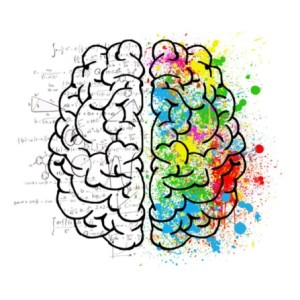
Monday Apr 27, 2020
Episode 100 - Hemispheres Playing God
Monday Apr 27, 2020
Monday Apr 27, 2020
- In this episode we begin with an unscheduled excursion into the realm of the neurobiology of the two hemispheres of the brain and the psychology of reparenting (with nods to our past conversations with Darcia Narvaez, and about codependency and Twelve Step work).
- We discussed the questions related to whether psychology based on a right-brain/left-brain dichotomy provides meaningful tools to increase self-understanding. Paul described his experience with opposite-hand-writing for self-discovery. One interpretation of this kind of experience—a reference for which this writer can provide no validated recommendation or criticism—was found here as an example of the approach, thanks solely to Google.
- We discussed whether the correct half of our brains is really in charge. This is just one of the many online articles you could read to learn more about the left brain-right brain relationships explored in various mentoring programs.
- Bill managed to segue into a different kind of dichotomy—the existential anxiety of the modern secularist, trying to be both relativist and moralist, and assuming impossible responsibilities; we believe God is not there, and we try to do God's job.
- The discussion included mentions of a book called The Master and His Emissary and NPR podcasts respectively called “Hidden Brain” and “”
- The Society of Catholic Scientists 2018 conference generated the artwork that serves as the illustration for these show notes.
- Audio editing by Morgan Burkart, bumper music by Vin Marquardt.
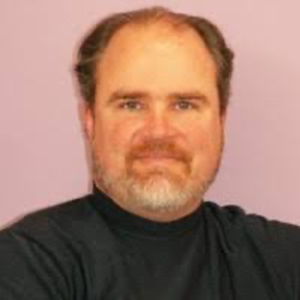
Monday Apr 13, 2020
Episode 099 - Secular Franciscans on World’s New Views, Old Values
Monday Apr 13, 2020
Monday Apr 13, 2020
In this episode, Bill presents excerpts from an interview with fellow Secular Franciscan Tim Short, director of formation for the Indiana Region. They discuss, among other things, St. Francis' attitude toward creation and how it relates to the larger picture of the medieval Christian intellectual world and the birth of modern science.
- Tim Short, OFS, is a member of the Secular Franciscan Order, whose initials in Latin are OFS. This international, canonically approved Roman Catholic order was founded by Saint Francis of Assisi especially for laypeople. Members belong to local, regional and national fraternities. Tim is the director of formation for the Our Lady of Indiana regional fraternity. He previously served as formation director for the Immaculate Conception local fraternity of the Order (still commonly abbreviated as SFO in the United States), located in Mishawaka, Indiana.
- Tim and podcast cohost Bill Schmitt are both professed members of the SFO, having professed a lifetime commitment to the Rule of Life which St. Francis composed. Francis also composed rules to govern orders of friars and nuns, the latter commonly called the Poor Clares.
- Tim has been instrumental in starting a new website that will serve SFO fraternities’ needs for “ongoing formation.” Find this “OFS Ongoing” website at https://secularfranciscansusa.org/ongoing-formation-resources/ When you visit the site, you’ll see a major resource Tim composed for a series of small-group discussions that can be used by any fraternity but was used first by the fraternity in Mishawaka. The resource, “A Journey Through John,” is based on the Gospel of John and reflects the importance Secular Franciscans are to place upon the Gospels as keys Francis used in building an intimate relationship with Jesus Christ. Resources drawn from Franciscanism, Pope Francis, and the beloved “Peace Prayer of Saint Francis” have been composed by Bill Schmitt and are also described at the new website.
- Other priorities in formation include an ever-deeper embrace of the Rule of Life and of the early writings from St. Francis and his friars who provided authoritative insights into the foundational Franciscan charisms.
- Tim pointed out in our interview that Saint Francis lived during a time when the old ethos made little distinction between Catholic religious thinking and what we would call scientific thinking. A time of greater doubt and division was emerging during Francis’ lifetime (circa 1180-1226). Francis’ sense of mission emphasized peacemaking, healing, and an embrace of natural life in all of creation, so one can see him as a bridge-builder encouraging love and awe for circumstances we would deem ripe for scientific analysis.
See more of Tim's work at ofsongoing.com.
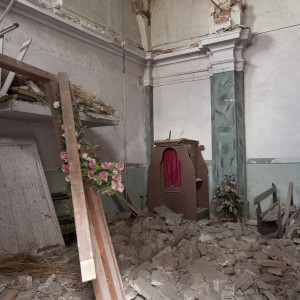
Monday Mar 30, 2020
Monday Mar 30, 2020
In this episode, Bill and Paul discuss the coronavirus, economics and risk, and the L'Aquila earthquake trial.
- Paul and Bill continued a discussion that began in the previous episode. They allowed the sense of gravitas they felt in the face of the COVID-19 pandemic to push them along a path through many uncertainties—where it’s tempting to rely on one’s GPS guidance system and, if possible, an autonomous (self-driving) vehicle. But should human beings relieve themselves of all responsibilities for self-guidance, and if not, how should they accept and address those responsibilities?
- Underlying this discussion was the perception that society has chosen to confront the pandemic through the wisdom of science, which boils down to a healthy use of reason, which of course is a God-given gift. But we are also blessed (and cursed?) with the gift of sensing that reason is not enough. Can we put ourselves on automatic pilot by trusting completely in calculations of risk and probability and a in human understanding that can’t take all possible values and outcomes into consideration?
- Paul cited observations by Hilaire Belloc, a great British writer and Catholic commentator from the early 1900s. Belloc argued that being “practical” and “realistic” is not enough, especially if a human being seeks to make decisions with Godlike precision, effectiveness, and comprehensiveness. For example, Paul pointed out that “social distancing” and related policy weapons being utilized against the spread of the Coronavirus are not enough to say that we are systematically reducing the risk of death or harm in an easily calculable way. For example, forbidding public gatherings of any significant size can be seen as a wise precaution against certain people becoming infected, but little thought is given to the fact that all the cancelled meetings of twelve-step programs means people who were being helped to address their own particular issues and risks might suffer tangibly from losing their support network.
- At some point, there is a need to acknowledge that some risks, like human death, cannot be eliminated, and a perfect society cannot be achieved. This meshed with Bill’s concern about whether “social distancing” might push man people further toward the phenomenon of social polarization, characterized by isolation, indifference and marginalization in many instances. Or will the experience of being distanced wake us up to the unhealthy results of these characteristics and rein us back from the precipice of thinking we can define and enforce the right answers that will yield the best outcomes?
- Ultimately, Bill and Paul agreed that humans seeking to provide humane, prudent leadership in a crisis must be “all in” as participants in a robust civic life in a well-ordered civil society that respects the many sides of individual experience. Can we put all our faith in the decision-making of a political system, especially if we have not made an equivalent commitment to enrich the body politic—and indeed to contribute in ways that go beyond mere gestures of political participation, such as voting?
- We must take into account a larger part of the story of human challenges, not risk management alone. At the time of this writing, for example, Bill learned that the Governor of Pennsylvania, after having ordered the shutdown of all liquor stores in order to slow the spread of the virus, was reconsidering his decision. According to news reports, experts had told him that a sizable portion of the alcohol-dependent population could suffer severe consequences from suddenly withdrawn access to hard liquor, meaning harm would be done by other means.
Image by Angelo Giordano from Pixabay.
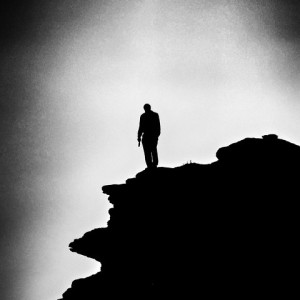
Monday Mar 23, 2020
Episode 097 - Social Distancing and Loners in the American Psyche
Monday Mar 23, 2020
Monday Mar 23, 2020
Bill and Paul discuss the topic on everyone's mind, the coronavirus and social distancing, through the lens of social polarization and isolation that already so characterized American, Western, and modern society in general.
- One should not assume that “social distancing” breaks connections. Paul and Bill got together to talk about the subject and found that it connects to many other things, at least as an intellectual exercise. But also with many emotional, spiritual and sociological implications.
- Bill said that, upon first hearing about “social distancing,” he instinctively connected it to a phenomenon he ponders and writes about a lot—the phenomenon of social polarization. (He writes about it in his OnWord blog, and in 2018 he wrote a book (When Headlines Hurt: Do We Have a Prayer?) reflecting on Pope Francis’ concerns about the polarizing effects of contemporary news and digital information flows.
- Social distancing, apart from the validity of scientific claims that it is needed to combat the COVID-19 pandemic, looked to Bill like a physical, societal manifestation of the polarization trend which leads to the isolation, exclusion and defamation of people. It encourages them toward confirmation bias because they choose to hear only the opinions that back up their pre-conceived notions.
- Paul said social distancing also seems to tie into America’s infatuation with the “loner.” He recalled the self-imposed isolation discussed in Robert D. Putnam’s 2000 book, Bowling Alone.
- Both participants in the conversation connected the concept of loner with many ideas: the modern assumption that being a loner need not carry high risks, like it once did, because of the protection offered by government; the omnipresent promise among colleges that they will prepare their students to become “leaders” as opposed to followers; the observation by Alexis de Tocqueville (in Democracy in America) that Americans of the 1800s were instinctively individualists; and the more recent observation that we live in an age of celebrity when everybody wants to famous, even in relatively impotent, purposeless ways. This latter notion was discussed by Catholic philosopher Peter Kreeft in an episode of EWTN’s “The Philosopher’s Bench.”
- It is especially sad that, at a time when Pope Francis points out that the Church has many valuable responses to the tendency toward social polarization and isolation, “social distancing” has prompted an end to Mass attendance. As remarked in a blog post by David Seitz, OFS, one of Bill’s favorite Franciscan commentators, the loss of civic solidarity and civil conversation is a profound kind of penance.
Image by Austin Monroe from Pixabay.
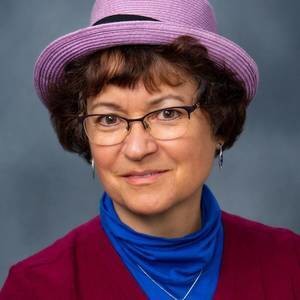
Monday Mar 09, 2020
Episode 096 - How a Strong Nest Can Lift Society Higher, with Darcia Narvaez
Monday Mar 09, 2020
Monday Mar 09, 2020
- We welcome Darcia Narvaez, Ph.D., to the microphone. She is a professor of psychology at the University of Notre Dame, specializing in developmental cognition, the human brain, and behavior.
- She has authored or edited numerous books, including Indigenous Sustainable Wisdom: First Nation Know-how for Global Flourishing (2019); Basic needs, wellbeing and morality: Fulfilling human potential (2018); and Developing the virtues: Integrating perspectives (2016).
- A cornerstone of her research, Neurobiology and the development of human morality: Evolution, culture and wisdom (2014), received the Expanded Reason Award from University Francisco de Vitoria and the Joseph Ratzinger/Benedict XVI Vatican Foundation. The award recognizes innovation in scientific research and academic programs based on Pope Emeritus Benedict’s proposal to broaden the horizons of reason. This expansion questions and incorporates reflections on the anthropology, epistemology, ethics, and meaning that exist within a specific science. The foundation selected her book from among more than 360 entries from 30 countries.
- Prof. Narvaez discusses here the concepts she groups together as “Evolved Nest” perspectives on child development and human flourishing. They serve as a lens for understanding the current state of our society and culture—our “downward cycle” in the collective pursuit of wisdom, morality, and community interaction. You can explore the concepts and their relevance for children, adults, and human ecology at evolvednest.org. She writes about an array of topics connected to this in a widely popular Psychology Today blog called “Moral Landscapes.”
- Based on her research and informed by her diverse experiences (spanning seven careers, as she puts it), she suggests several ideas for recapturing a sense of wholeness amid the woundedness in human nature. Several characteristics of modern society have arisen over the past few centuries to cause the wounds seen today in civic life, communities, families, and individuals, she says. Drawing upon lessons from cultures that existed a long time ago, her suggestions to restore wholeness include such often-forgotten basics as more frequent engagement with nature, thinking new thoughts, journaling, and free-spirited play. “People don’t know themselves,” she comments. “You can get a lot of work done if you take a break.”
- Morgan Burkart is the audio engineer for this third season of “That’s So Second Millennium.” Our original theme music, “Igneous Grok,” is by Vin Marquardt. Paul Giesting, Ph.D., is a geologist, consultant, and public intellectual with a passion for philosophical and theological insights into the world that complement scientific knowledge. Bill Schmitt, MPA, is an independent journalist, consultant, musician, and multimedia content producer in the fields of higher education, engineering, religion, and public affairs.

Monday Feb 24, 2020
Episode 095 - Bridges Built by Song, with musician Micki Miller
Monday Feb 24, 2020
Monday Feb 24, 2020
- Where can the search for connections between faith and science (that is, between the deeper sense of meaning in life we all crave and the tangible experiences that our five senses tell us are “real”) take us? Our podcast series today receives inspirational guidance from community-builder and up-and-coming recording artist Micki Miller. She helped us explore one universe of answers where no TSSM episode has gone before. That’s the realm of music.
- Micki Miller, born to pastors in South Bend, Indiana, writes, sings, and produces R&B and soul music that touches people’s hearts. You might say her work, which you can find on Amazon, You Tube, and Bandcamp, is instrumental in the even bigger picture of her life, grounded in a natural passion to bring people together around the words and sounds of authentic love songs.
- Micki and Bill serve on the board of directors of The Music Village, a community musical arts center and school in South Bend. This growing non-profit organization, known for innovative outreach, celebrates music and cultural expressions rooted in the diverse local and global traditions found in the “Michiana” region—sections of Indiana and Michigan neighboring Chicagoland.
- In this episode, Bill interviews Micki about her experience of connecting faith to minds and hearts with a tool kit that has grown along with her dedication to the power of music. The tools include the talent of a singer-songwriter and keyboardist to share sounds of the past and present, the technological skills supporting her local recording studio at the service of her own band and others, and an embrace of synergies among a wide array of people and imaginations.
- Micki talked with TSSM about the ability of music to keep injecting wonder and fresh thinking that can transcend a silo approach to science, religion, and other topics. She discussed this in the context of a retreat-and-recording session series she attends under the direction of DJ Jazzy Jeff, a producer who collaborates with actor Will Smith. News stories have mentioned Questlove (of The Roots seen on “The Tonight Show”) as an enthusiastic fan of Micki. Micki performs internationally, but her ties to family and friends keep her grounded in her hometown and in her efforts as a South Bend region community-builder.
- Paul mentioned that Bill’s favorite among Micki’s You Tube videos is her original song, “You,” performed at the ChiBrations studio in Chicago. (Paul may possibly mix that name up with the name of a musical group in the introduction.)
Addendum: Paul pointed out the official podcast series of Purdue University’s College of Engineering, “Sounds Like the Future.” Bill says it has been one of the great privileges of his journalism and media-consulting career to collaborate with the College in launching the podcast, and he notes it could not have taken shape without the production skills, academic insights, valued friendship, and “great radio voice” contributed by Paul. New episodes will be posted monthly.
Audio production for this episode by Morgan Burkart.
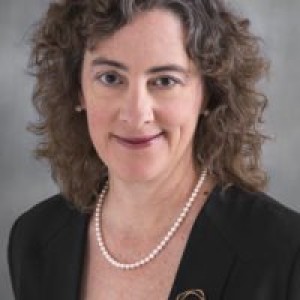
Monday Feb 10, 2020
Episode 094 - Maureen Condic (rerun, full interview)
Monday Feb 10, 2020
Monday Feb 10, 2020
This week, events have forced another "greatest hits" episode, and so we bring you for your convenience the entire Maureen Condic interview from the June 2019 Society of Catholic Scientists meeting in a one hour and forty-five minute extravaganza. The following are Bill's liner notes from the first run episodes.
- University of Utah’s information page for Dr. Maureen Condic. She is an Associate Professor of Neurobiology and Anatomy, with an adjunct appointment in Pediatrics. Her research focuses on the role of stem cells in development and regeneration. She has taught human embryology in the University’s Medical School for 20 years.
- See Dr. Condic’s biographical summary in the list of speakers at the Society of Catholic Scientists 2019 conference titled, “What Does It Mean to Be Human?” At the conference, this embryologist and specialist in developmental neurobiology delivered the St. Albert Award Lecture: “Human Beings are Defined by Organization.”
- Dr. Condic is the 2019 recipient of the St. Albert Award, named for Saint Albert the Great, the Catholic Church’s patron saint of natural scientists. The award is given annually to a Catholic scientist whose life and work give witness to the harmony that exists between the vocation of scientist and the life of faith. See more details about the award, including its previous recipients.
- Dr. Condic’s previous awards include the Basil O’Connor Starter Scholar Research Award, created in 1973 and presented by the March of Dimes to support a young scientist’s promising new research. The March of Dimes was established by President Franklin D. Roosevelt, initially to fight polio. Today, the foundation focuses on health problems in babies, especially premature birth, birth defects, and low birth weight. Find context for the program of research support here.
- Dr. Condic also has been the recipient of a Scholar Award for research from the McKnight Endowment Fund for Neuroscience.
- In 2018, she was appointed to the National Science Board. The NSB establishes the policies of the National Science Foundation and serves as advisor to Congress and the President.
- She is a member of the Pontifical Academy for Life, which is dedicated to promoting the Catholic Church’s consistent life ethic and supporting research in bioethics and moral theology.
- When confronted with alternative views and occasionally accused of being “brainwashed” with a pro-life stance, Dr. Condic says one must ask, what view actually makes more sense of the world? A quote from the episode: “What vision of the world actually accounts for most of the data? In my experience, it’s a Christian vision of the world, and particularly a Catholic vision of the world, that very much endorses precisely the kind of questioning mind that promotes scientific investigation….”
- Another key thought from the episode: The information generated in scientific disciplines is so huge, it forces many scientists to make their own fields of specialized inquiry “narrower and narrower.” Also, “they have no time” to give deep consideration to many big questions about life, the world, and the origin of the universe. “Particularly in biology, there’s such an intoxication with success.” Individuals who are indeed brilliant and making remarkable progress for people may become confident that they can answer all the important questions.
- Starting at about the 22-minute mark in this episode, Dr. Condic tells the story of an event that changed her life and produced her commitment to public advocacy and public education.“ She saw a need to combat ignorance or oversimplification about scientific advancements and to be “an advocate for patients and knowledge and factual information.”
- Dr. Condic also provides a valuable, clear update on parts of the debate about disease treatments using embryonic stem cells as opposed to adult stem cells, with research on the latter having resulted in a huge number of clinical trials and prospects for various treatments. A major new phase of the research has moved on to the use of induced pluripotent stem cells, which do not raise the same ethical issues as embryonic cells.
- In presenting the St. Albert Award during the Society of Catholic Scientists conference, president Stephen Barr, Ph.D., pointed out Dr. Condic’s “courageous public defense, on scientific and philosophical grounds, on the human status of human embryos.”
- Our discussion of totipotent, pluripotent, and plenipotent stem cells helped to clarify a complex subject of great importance to many people, such as those who suffer from diseases awaiting therapies capturing the power of these cells. Dr. Maureen Condic, as a pioneer in this field, contributed insights in 2013 by developing the concept of plenipotent cells. See her journal article.
- Our discussion also led to a sense of wonderment about the ability of cells to follow such complex paths of development, starting with the organism created when sperm and egg combine. The product and the process can easily be dismissed as a simple mass of cells, or one can recall Psalm 139:14, “I am fearfully and wonderfully made.” In this episode, we discussed how it seems viscerally sad that the amazement, which is itself so full of potential, can be lost in everyday discussions of human life.
- Related to this, Dr. Condic pointed out that there is an unfortunate lack of philosophical education among many scientists. Here is a blog post from Scientific American discussing synergies between science and philosophy—synergies which are at the core of this podcast’s mission.
- We discussed the relevance of the philosophical concepts of form and substance. Here’s a web page explaining those concepts.
- This book, written by Dr. Condic and her brother sounds like it is a rare and valuable synthesis of philosophical and biological insights about life: Human Embryos, Human Beings. She noted in our episode that such an extended, on-point synthesis is rare for various reasons, including the need to clarify vocabulary used on both sides of the dialogue, avoiding the risk that we will talk past each other.
- She has written another book, this one examining the biological and philosophical issues around human twinning, Untangling Twinning. It is scheduled for publication in the summer of 2019. For now, a computer search using this title yielded, as one of the first finds, a copy of a news release written by TSSM podcast co-host Bill Schmitt and posted at classicaltheism.com.
- The conversation involving Dr. Condic, Dr. Giesting and Schmitt turned to the complexities of the nation’s debate about abortion. That debate engages a mix of biological facts (which may or may not be probed in the full context of updated knowledge), personal experiences, and deeply held principles, positions, and emotions including authentic sympathy for the circumstances in which pregnant women find themselves. Although providing scientific insights is a crucial advancement of the debate because people deserve to have comprehensive information, the laying out of certain biological facts alone will not necessarily change minds, Condic said.
- In many cases, much of the public presentation of the abortion controversy dividing people is manufactured, but there is room for honest discussion on particular grounds. We each can play a part in adding to human understandings in this controversy. People evolve their judgments on the wide scope of the debate incrementally over time.
- But the search for a full overview is complicated; indeed, Dr. Condic referred to difficulties she and her brother Samuel Condic encountered (different vocabularies, etc.) in compiling their book Human Embryos, Human Beings. The book aims to bring together philosophical and biological insights about human life at its beginning. In short, the abortion debate requires us to spend more time in listening to each other, asking questions, probing the basis of people’s stances, and less time in simply lecturing, she said.
- Paul talked about his experience with identical twins in his family. Twinning is a complex arena for understanding “who you are,” raising core questions with biological and philosophical implications. Our discussion around the microphone extended to research on the topics of compaction and chimeras. Condic has written a book that delves into the complexities. Untangling Twinning is scheduled for publication this summer.
- There are also biological phenomena complicating an understanding of our human nature in sexual terms. There can be complex factors differentiating between one’s genetic sex and one’s hormonal sex, Condic said. A very small segment of the population has genetically compound sexual identities. Intersex disorders can occur in a variety of ways, although in the vast majority of cases questions of a person’s gender identity are not grounded in physical causes, Condic said. Studies in some areas raise questions within the LGBTQ community itself. Among many, endeavors focusing on a “gay gene” that would undergird a statement that “I was born this way” have been diminished by a view that gender identity is fluid or is driven by non-genetic factors.

